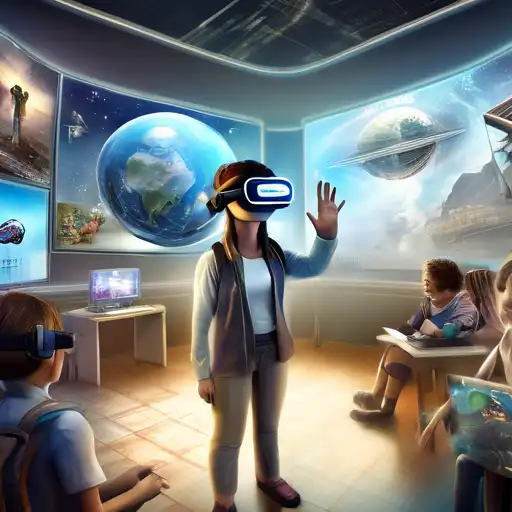Introduction to Virtual Reality in Education
Virtual Reality (VR) is rapidly transforming the educational landscape, offering immersive learning experiences that were once beyond imagination. This technology is not just a tool for entertainment but a powerful educational instrument that can enhance understanding, retention, and engagement among students of all ages.
The Benefits of VR in Learning Environments
VR brings a multitude of benefits to the educational sector. Firstly, it provides an immersive learning experience, allowing students to explore complex concepts in a three-dimensional space. Secondly, it caters to various learning styles, making education more inclusive. Lastly, VR can simulate real-world scenarios, providing students with hands-on experience without the associated risks or costs.
Implementing VR in Schools and Universities
Many institutions are now integrating VR into their curricula to provide students with cutting-edge learning tools. From virtual field trips to anatomy lessons in 3D, the applications are endless. However, successful implementation requires careful planning, including training for educators and investments in the necessary hardware and software.
Challenges and Considerations
Despite its potential, the adoption of VR in education faces several challenges. These include the high cost of equipment, the need for technical support, and concerns over screen time and health effects. Educators and policymakers must address these issues to fully harness VR's educational potential.
The Future of VR in Education
As technology advances, VR is expected to become more accessible and affordable, paving the way for widespread adoption in educational settings. Future developments may include more interactive and personalized learning experiences, further revolutionizing how we teach and learn.
For more insights into innovative learning technologies, check out our articles on EdTech Trends and Digital Classrooms.
Conclusion
Virtual Reality holds the promise of transforming education by making learning more engaging, interactive, and effective. While challenges remain, the potential benefits for students and educators alike are immense. As we move forward, it's clear that VR will play a pivotal role in shaping the future of education.
